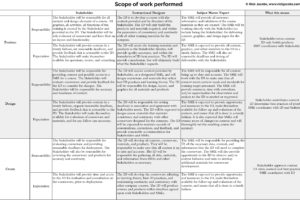I don’t like to write as a representative of all those on the Autism spectrum. I only write my experiences and later find out how many others do, have, or experience the same things. A commonality I found out late in life that comes with Autism is racking depression and my tendency to disappear and turtle-up when it hits.
I am sure that there are those on the spectrum that have clinical, brain chemistry-induced depression. I know that for some, they need medication for depression and I completely understand and support that. However, not all depression needs medicine. Not all those that are depressed are because of brain chemistry and I think there is too much of a dependency on medicating without getting to the root of what might be actually happening.
I do get depressed and I see the tendency in my son, who is also on the spectrum. Before I had ever consider that Autism may be an issue with me, I knew I struggled with depression and so I spent a lot of time trying to figure out why. I tried depression medication, but it only took the edge off and didn’t really do anything for me. I weaned off of it and started doing something that I believe that many Autistics can do, but just might not know how or are even aware they have the capacity to do this – I introspected.
I don’t know if this is a common trait of Autism or is just the product of cumulative years of isolation from community and people for various reasons, but I have always been able to examine my actions and reactions, proclivities and biases, from an objective third-party perspective. I do know that it is a common trait of those on the spectrum to want to be good people and to do things the right way, so we spend a lot of time examining ourselves and having reasons for our actions – we don’t like the idea of being slaves to emotions; we don’t like have as an answer to a problem “I just feel that way.” We spend a lot of time examining ourselves to make sure we can justify a position or belief because we want to know that it has value and our investment in that idea or belief is valid, sound, and reasonable.
How does that relate to depression for me? Because I don’t like being depressed and how much it impacts my life, I want to know what is triggering it and try to fix it so I can get back to my 56,494,736 projects. I do not like this random emotional state robbing me of motivation which leads into a downward spiral of self-loathing that I am not accomplishing anything. I stop moving forward because of depression, then I get further depressed because I am not moving forward. I am a failure because I am not doing, so I fail even more now because I am not doing because I feel like a failure. It leads to hopelessness, imposter syndrome, and… well, you get the idea, a self-feeding spiral to emotional hell.
So, when I started recognizing I was in a depression I would do one of my favorite things, something of which I am particularly good – forensic examination. I follow the thoughts that leaded me back to where the trigger was pulled.
And I found it. It is isn’t one thought, it isn’t one interaction, it isn’t even really anyone’s fault. For me, depression starts when my mind gets stuck in a loop of thought. It could be about anything, it could be a memory of something I did in my past that hurt, could be something that happened to me where I didn’t react the way I should have, could have been an actual failure that I was examining, it could be some strategy I am planning: it is the sudden sinking into a thought loop that I cannot find a way out of.
The problem comes when I can’t find the way forward. I hit a fork in the road where I cannot discern the best path to take. I can’t see which way to go and I cannot figure out how to move forward. I get stuck in a thought loop and I get depressed. Add all the depression feeding bits into it and I am shut down, floundering, struggling, and not able to articulate it.
I already look like I am not “in the world” with my naturally flat affect. I am quiet, reserved, and processing, naturally. Depending on what I am thinking about, I am not working on other, higher level reasoning things, either. I might trade off and try to distract myself with other thought projects, but I keep coming back to the one I am stuck on. I stop producing what I usually do. I stop writing, shooting photography, interacting with friends, and all of the other things I like to do. Then I am in a full depression.
The hardest thing to do is write. When I am in a depression brought on by my thought loop, writing is the most difficult thing for me to do, so I look like I have disappeared. My writing production drops way off and I look inconsistent when I do produce.
There is only one way out of it for me. It is harder than it sounds and it sounds very simplistic – I make a choice and move forward without the comfort of believing I know how the decision will work out. I go through the loop, get to the juncture I am stuck on and pick the “best-worst option,” then ride the wave until I can get my footing again.
It is VERY scary because I don’t have a reason for choosing the option I did, other than to make a choice to escape the thought loop. I have acted against my nature and I am terrified of making a mistake, of being wrong, so I stay shutdown and turtled-up until I see the outcome. Sometimes the choice I have to make is more than that, though, I have to choose an option regardless of perceived outcomes, but I also have to choose to engage with the humanity around me again. A humanity that already doesn’t understand me or cares to try, either. That is even more scary. Now, I have to choose to end a depression that most don’t realize I was in and I have to expose myself to questions and, sometimes, derision for disappearing. It is already hard to expose myself, it is even harder to expose myself to people whose criticism can amount to “just get over it.” I can’t just “get over it.” This is who I am. And while I can make decisions to move forward, I don’t get over things. I relive and re-experience everything, and it all adds up.
Disappearing isn’t a choice, it is an outcome. Reappearing is always a choice, but with unknown outcomes that some just can’t stomach, so they stay disappeared where it is safer. We just want to be safe. Disappearing is safer emotionally, but not professionally, in relationships, or when having to maintain interactions. For me, I have a higher capacity for risk than others, but I had to develop it, through choice.
So, the next time someone you know who is on the spectrum disappears, please don’t think it is disinterest, lack of caring, or something you did that they can just get over. Just welcome them back, tell them you miss them, or, at the very least, send a note and let them know they are missed and you look forward to when they decide to un-turtle again.
#autism #autismintheworkplace #aspergers #autistic #depression #analysis #employment #professionaldevelopment #beingaware #disabilities #hr #hranddisabilities #autismspectrum #autismacceptance #hrtrends #actuallyautistic #autismawareness





